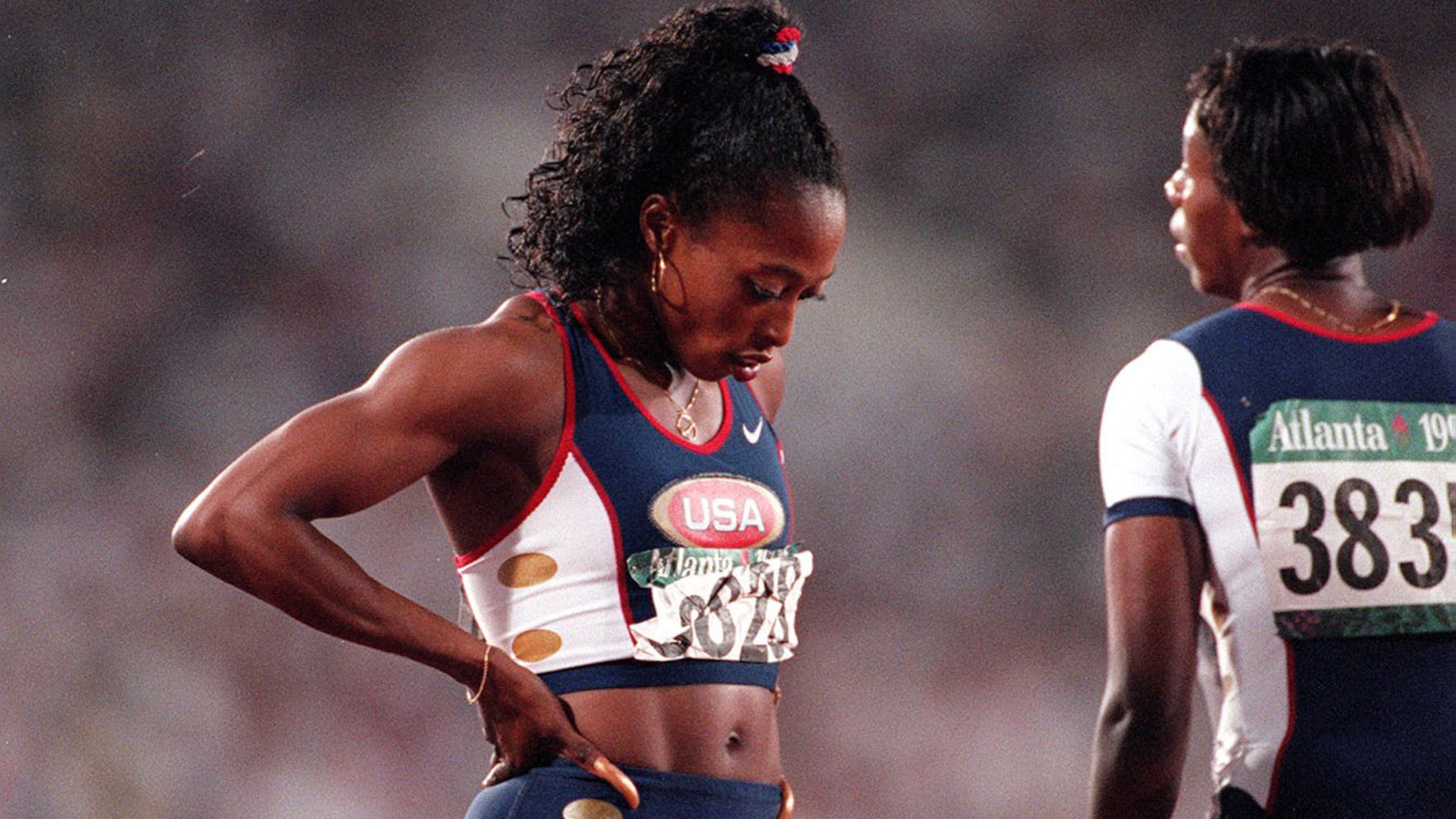On this day: One hurdle that just can’t be cleared | 1996 Atlanta Olympics

Editor’s Note: This story was published in the Atlanta Journal-Constitution on Aug. 1, 1996, after American sprinter Gail Devers raced to another photo-finish, this one not in her favor. This is a daily take of the events that transpired on the 25th anniversary of the Games in Atlanta.
She doesn’t lose often, and even when she does Gail Devers is a champ. In 1992, she was within sight of becoming the first women since Fanny Blankers-Koen to win the 100 and the 100 hurdles in one Olympiad. But Devers caught her right foot on the 10th (and last) hurdle, falling while leading, winning no gold, no medal at all.
In 1992, here’s what Gail Devers said: “It just wasn’t meant to be.”
On Wednesday, she stood again on the cusp of history. She’d won the 100 a second time, and now here were the hurdles. What happens to a dream deferred? Does it just get sweeter if/when it does come true? Devers had the chance to find out, a chance few among us ever get.
And she lost again.
And here’s what she said: “It just wasn’t meant to be.”
Mary Slaney tripped over Zola Budd and wept bitter tears. Carl Lewis won his eighth gold medal and went on worldwide television to lobby for the chance at a ninth. Gwen Torrence lost the 100 in 1992 and cast aspersions on those who finished ahead of her, suggesting that at least some were drug-driven.
Track and field is a venue laden with whines and wherefores. But this is what Gail Devers, fourth in hurdles, again left without a golden double or even a second medal, said: “No excuses.”
She might have ducked the media. She did not. She stood still and answered questions for 10 minutes. She smiled. She flashed her famously long fingernails. (On this night, they were painted mostly gold - a flashy bit of detailing left without the expected complement.) She said she’d “felt good” in the earlier semis, said that in the final she “never got into rhythm.” Was this an attempt to explain away defeat?
No chance. “This has to do with Gail,” Gail Devers said.

Where does it come from, such uncommon equanimity? Maybe from having a preacher for a dad. Maybe from overcoming Graves’ disease, a condition that nearly resulted in having her foot amputated, to reign as the world’s fastest woman. More likely there’s simply something unique to Devers, some inner candor that refuses, in this age of rampant victimization, to blame anyone else.
Whatever it is, it is a glorious and winning gift. Torrence and Devers were said to loathe one another coming into these Games, yet after Devers had bested her again in the 100, Torrence was moved to hug and congratulate her rival. Sometimes grace is contagious.
This time was different from Barcelona, Devers said. She’d led there; here she was never ahead. But it’s the strangest thing: Even when she’d fallen in ’92, Devers never raged at the fates. More than any other athlete working today, she is able to look upon victory and defeat as tiny parts of the greater whole.
Already she has had a movie made about her life. It should serve as an instructional film. Too many lives are defined by wins and losses. Gail Devers runs her races and tries her best, and when they’re done she lets them go. On the night a grand double was denied her a second time, this is what she said: “I’m wasn’t my time this time.”
Wrong. Her time is always.
Day 12: A softball first, gold | Day 14: U.S. women seize golden opportunity


